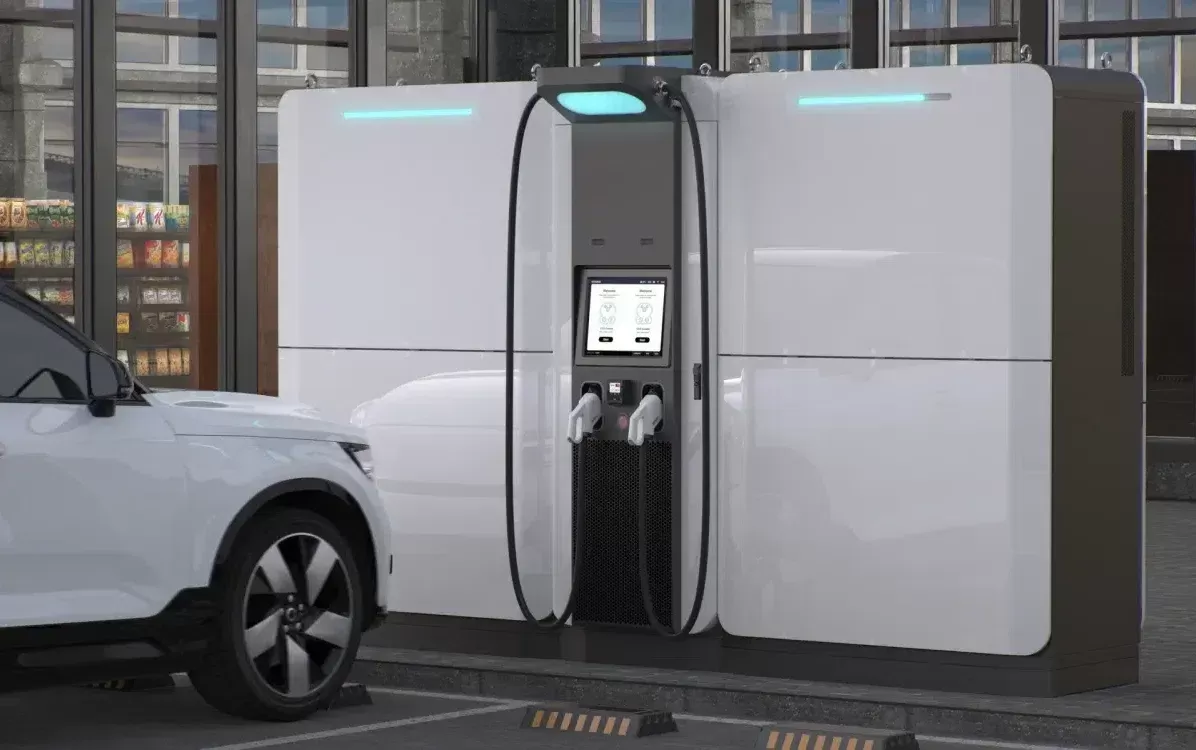Notifications

7 minutes, 5 seconds
-57 Views 0 Comments 0 Likes 0 Reviews

As a Professional EV Charger Manufacturer in China, Topper Company Delivers Reliable Electric Vehicle Charging Stations and Comprehensive Charging Solutions.
Battery energy storage systems (BESS) are rapidly transforming the electric vehicle (EV) charging landscape. Acting like massive rechargeable batteries, these systems store electricity during off-peak hours—when energy is more affordable and plentiful—and discharge it during peak demand. This strategic energy management reduces operational costs and eases the burden on the electrical grid, marking a major step forward in the evolution of EV infrastructure.
Beyond cost savings, battery storage plays a critical role in balancing energy supply and demand. By storing surplus energy when demand is low and supplying it when demand spikes, BESS ensures a more stable, efficient, and sustainable charging process. This capability is especially important as the world moves toward greater use of renewable energy sources like solar and wind.
Battery storage is enhancing the performance and reliability of EV charging stations—particularly high-power DC fast chargers. These systems require significant amounts of energy, especially during peak usage times. Battery storage addresses this challenge by acting as an energy buffer: it stores power when demand is low and delivers it during high-demand periods. This load balancing reduces grid stress and helps prevent power disruptions.
For charging station operators, one of the most valuable benefits of BESS is the reduction of demand charges—fees based on the highest power usage during a billing cycle. By lowering peak power draw from the grid, battery systems cut operational costs. These savings can then be passed on to EV drivers, making charging more affordable and accessible.
Battery storage allows energy to be purchased and stored during off-peak hours when electricity prices are lower. That stored energy can then be used during peak times, reducing reliance on the grid and cutting energy costs. This results in a more efficient and cost-effective charging process.
BESS enhances the reliability of the electrical grid by balancing supply and demand, which is crucial as the share of intermittent renewable energy grows. Even when solar or wind output fluctuates, stored energy ensures consistent power for EV chargers.
By enabling better integration of renewable energy sources, battery storage systems reduce the need for fossil fuel-based power. This lowers greenhouse gas emissions and supports a cleaner, more sustainable transportation future.
Lower demand charges mean reduced operating expenses for charging station owners. These savings can be transferred to consumers in the form of lower charging fees, helping accelerate EV adoption.
In the event of power outages or grid disruptions, BESS can keep charging stations operational. This backup capability strengthens the resilience of EV infrastructure, especially during emergencies or natural disasters.
Battery systems are highly adaptable. Whether it’s a small urban charger or a large highway fast-charging hub, storage capacity can be customized to meet site-specific energy demands, ensuring scalability across different applications.
Despite their advantages, battery storage systems come with a few challenges. The most notable is the high upfront cost of installation. While the long-term savings often justify the investment, the initial capital required may be a barrier for some operators. Fortunately, costs are expected to decline as battery technologies advance and production scales up.
Battery lifespan is another consideration. Like all batteries, BESS components degrade over time and require maintenance or eventual replacement. Proper system management is essential to maximize performance and longevity.
Integrating battery storage into existing EV infrastructure also requires thoughtful planning. Operators must assess local energy demand, grid capacity, and the availability of renewable power sources. Coordination among utilities, station operators, and policymakers is critical to ensuring seamless implementation.
The outlook for battery energy storage in EV charging is promising. Continued innovation is leading to more durable, cost-effective, and efficient storage technologies. One emerging trend is the use of second-life EV batteries—repurposed batteries that no longer meet vehicle performance standards but still offer valuable storage capacity for stationary applications. This not only reduces waste but also lowers the cost of energy storage.
Another exciting development is the integration of smart grid technologies with battery systems. Smart grids use real-time data, sensors, and automation to optimize energy flow. When paired with BESS, they enable even greater efficiency and reliability in managing EV charging demand.
Battery energy storage systems are reshaping the future of EV charging. By optimizing energy use, reducing costs, and enhancing grid resilience, they provide a smarter, more sustainable solution to meet the growing demands of electric mobility. As EV adoption accelerates and renewable energy becomes more widespread, BESS will play an increasingly vital role in building a cleaner and more resilient energy ecosystem.
The integration of battery storage into EV infrastructure isn’t just an innovation—it’s a necessary step toward a greener future.Know more about Google SEO Directory

